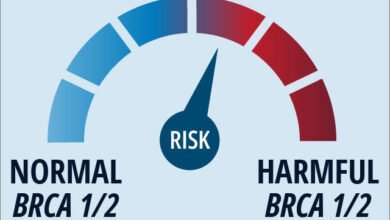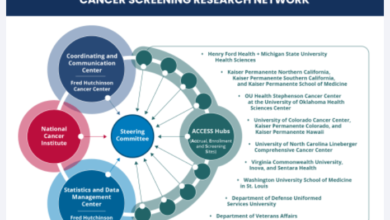SABCS 2023: POSITIVE Results for Breast Cancer Patients Wanting to Conceive

A breast cancer diagnosis can pose innumerable challenges, and with the average age at diagnosis dropping, the impact of treatment on fertility can present yet another heartache.
For a woman who wants to conceive, the decision between treating her cancer and building a family can be a tough one.
But what if she could do both?
At last year’s San Antonio Breast Cancer Symposium (SABCS), researchers reported that patients in the POSITIVE clinical trial safely paused cancer treatment for up to two years to get pregnant—without adverse impacts on their cancer outcomes.
The study continues to provide uplifting news.
This year, researchers shared that patients who paused breast cancer treatment could even use assisted reproductive technologies (ART), such as ovarian stimulation for in vitro fertilization (IVF), without increasing their risk of cancer recurrence. Fertility preservation methods, such as freezing (or “cryopreserving”) the patient’s eggs before cancer treatment, were found to be safe, too.
“Our data demonstrate the efficacy and short-term safety of different fertility preservation and ART options, building on the primary results of the POSITIVE trial and providing vital information for fertility counseling of young breast cancer patients,” said Hatem A. Azim Jr., MD, PhD, who presented the latest results at this year’s SABCS. Azim is an adjunct professor at the School of Medicine and Breast Cancer Center at the Tecnológico de Monterrey in Mexico.
According to Azim, there have been long-standing doubts about the safety of fertility preservation and ART for patients with certain hormone-driven breast cancers.
“There is a concern within the medical community that the use of fertility preservation or ART methods, particularly those that entail the use of hormones, could have detrimental effects on patients with hormone receptor (HR)-positive breast cancers,” he noted.
HR-positive breast cancers are typically treated with hormone therapies that block the ability of estrogen to act upon cancer cells. The therapies are used for years to keep the cancer at bay and can have various effects on a patient’s reproductive system. For this reason, patients receiving hormone therapies are counseled to avoid pregnancy.
The POSITIVE trial sought to determine whether temporarily stopping hormone therapy to allow pregnancy would increase the risk of cancer recurrence. The trial followed 497 patients with HR-positive breast cancer. As reported previously, 368 patients became pregnant after pausing endocrine therapy (with 317 having at least one live birth) and had similar disease outcomes as patients who didn’t stop treatment, suggesting that pausing treatment for up to two years could be a viable option for patients wanting to conceive.
However, it remained unclear whether this option was safe for those who had used fertility preservation prior to cancer treatment or who planned to use ART to conceive during the treatment pause.
“I don’t think any woman should have to choose between life and giving life.”
Shayla Johnson
To address this gap, Azim and colleagues conducted a secondary analysis of outcomes from the POSITIVE trial—this time, focusing on patients who had undergone some form of fertility preservation and/or ART. Among these patients, 179 used embryo or oocyte cryopreservation prior to enrollment in the POSITIVE trial, while 215 used some form of ART to attempt pregnancy. The most commonly used ART was ovarian stimulation for subsequent IVF and cryopreserved embryo transfer.
Azim reported that ovarian stimulation did not increase a patient’s short-term risk for cancer recurrence: 9.7% of patients who underwent ovarian stimulation experienced a breast cancer recurrence within three years compared with 8.7% of those who did not undergo the procedure.
However, ART was associated with a high chance of pregnancy—82.4% of those who used ovarian stimulation and cryopreserved embryo transfer became pregnant.

Age was also found to be a factor. “We found that at two years after enrollment, 80% of women younger than 35 years had a pregnancy compared to 50% of those who were older than 40,” Azim said.
All in all, the results from the POSITIVE trial indicate that patients with HR-positive breast cancer wanting to conceive can pause treatment to do so—either naturally or through fertility preservation and/or ART—without increasing their risk for disease recurrence, at least in the short-term.
That’s some positive news, for sure—especially for patients like Shayla Johnson, who couldn’t wait to be a mother but was diagnosed with breast cancer at the age of 34.
“The thought of [cancer treatment] destroying my chances of motherhood was terrifying and devastating, so I took precautions before treatment,” she said. She enrolled in the POSITIVE trial after her 2016 diagnosis and eventually became pregnant with her son, Ronin.
“Being a part of the study has helped me in my own journey, and I have a beautiful son now. … I’m very happy and proud to be a part of something that can help young cancer survivors be a little more at peace with the decision to have children after cancer,” Johnson said.
“I don’t think any woman should have to choose between life and giving life.”
Source link
#SABCS #POSITIVE #Results #Breast #Cancer #Patients #Wanting #Conceive



